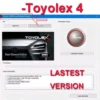No products in the cart.
Demystifying Electric Vehicles: Understanding the Differences Between Hybrid, Plug-In Hybrid, Mild Hybrid, and Electric Vehicles 6
Electric vehicles (EVs) have become increasingly popular in recent years, as people are becoming more conscious of the impact of their daily activities on the environment. However, not all electric vehicles are created equal, and it can be difficult to understand the differences between various types of electric vehicles. In this blog post, we will explore the different types of electric vehicles, including hybrid, plug-in hybrid, mild hybrid, and electric vehicles.

Electric vehicles (EVs) have become increasingly popular in recent years, as people are becoming more conscious of the impact of their daily activities on the environment. However, not all electric vehicles are created equal, and it can be difficult to understand the differences between various types of electric vehicles. In this blog post, we will explore the different types of electric vehicles, including hybrid, plug-in hybrid, mild hybrid, and electric vehicles.
Section 1: Electric Vehicles (EVs)
Electric vehicles are vehicles that run entirely on electricity. There are two types of electric vehicles: battery electric vehicles (BEVs) and fuel cell electric vehicles (FCEVs). BEVs are the most common type of electric vehicle and are powered by a battery pack that can be recharged by plugging into an electrical outlet or charging station. FCEVs, on the other hand, use hydrogen fuel cells to generate electricity to power an electric motor.
The benefits of electric vehicles include lower emissions, reduced dependence on fossil fuels, and reduced operating costs. However, the challenges of electric vehicles include limited range and a lack of charging infrastructure.
Section 2: Hybrid Vehicles
Hybrid vehicles are vehicles that use both an electric motor and an internal combustion engine (ICE). There are two types of hybrid vehicles: traditional hybrid vehicles and plug-in hybrid vehicles. Traditional hybrid vehicles use regenerative braking to recharge the battery pack and provide additional power to the electric motor. Plug-in hybrid vehicles have larger battery packs and can be recharged by plugging into an electrical outlet or charging station.
The benefits of hybrid vehicles include improved fuel economy, reduced emissions, and improved performance. However, the challenges of hybrid vehicles include higher upfront costs and dependence on fossil fuels.
Section 3: Mild Hybrid Vehicles
Mild hybrid vehicles are vehicles that use a smaller battery pack and an electric motor to assist the ICE. Unlike traditional hybrid vehicles, mild hybrid vehicles cannot operate solely on electric power. The electric motor can provide additional power to the ICE, reducing fuel consumption and emissions.
The benefits of mild hybrid vehicles include improved fuel economy and reduced emissions. However, the challenges of mild hybrid vehicles include limited electric-only driving range.
Section 4: Hybrid vs Plug-In Hybrid Vehicles
Hybrid vehicles and plug-in hybrid vehicles are similar in that they both use an electric motor and an internal combustion engine (ICE) to power the vehicle. However, there are some key differences between the two types of vehicles.
The main difference between hybrid and plug-in hybrid vehicles is the size of the battery pack and the ability to recharge the battery.Hybrid vehicles have a smaller battery pack and can only recharge the battery through regenerative braking or while the ICE is running. In contrast, plug-in hybrid vehicles have a larger battery pack that can be recharged by plugging into an electrical outlet or charging station.
Another key difference between hybrid and plug-in hybrid vehicles is the electric-only driving range. Hybrid vehicles cannot operate solely on electric power and rely on the ICE to provide power when the battery is depleted. Plug-in hybrid vehicles, on the other hand, have a longer electric-only driving range, allowing drivers to operate the vehicle solely on electric power for a certain distance before the ICE kicks in.
The benefits of plug-in hybrid vehicles over hybrid vehicles include increased fuel efficiency, reduced emissions, and a longer electric-only driving range. However, the higher upfront costs and the need for charging infrastructure can be challenges for some drivers.
Whille hybrid and plug-in hybrid vehicles share some similarities, the differences between the two are significant. Plug-in hybrid vehicles offer a longer electric-only driving range, which can reduce emissions and fuel consumption.However, the need for charging infrastructure and higher upfront costs may deter some drivers from choosing a plug-in hybrid vehicle over a traditional hybrid vehicle. Ultimately, the choice between the two types of vehicles will depend on the driver’s individual needs and preferences.
Conclusion
In conclusion, electric vehicles come in various forms, and each type has its benefits and challenges. While electric vehicles have become increasingly popular, the lack of charging infrastructure and limited range remain significant challenges. However, as technology continues to improve, and more charging stations become available, we may see a significant increase in the adoption of electric vehicles in the future. Overall, electric vehicles offer a promising solution for reducing emissions and our dependence on fossil fuels, and it’s crucial to continue investing in this technology to improve its adoption and functionality.






Either go full electric or old school petrol car. Nothing in between is good. Trust me.
I am interested in ICE to EV conversion, i have tehnical skills but what is about legality of it in Europe?
Hybrid are biggest @@@@, either go full electric or fossil. no beetwen
My sister owned Leaf gen2 and she only had some brake minor problems and once battery drain problem which was repaired under warranty.
Well i was thinking of buying Leaf but i heard from some experts that it is not that reliable in strong climate, too hot or too cold. I am still considering but you should read text from independent services here – https://www.reddit.com/r/electricvehicles/comments/118kj3u/attention_nissan_leaf_2_generation_fraud
Nice, short but spot-on text. I drive Nissan Leaf gen1 for about 8 years now, battery is still original but i plan to exchange it this year. It is my first electric car and i have great experience with it. I had just regular service which is even cheaper than diesel or petrol one.